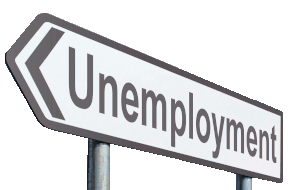 There are only two factors that determine what you are paid for the work that you do - how much you are willing to work for and how much your employer is willing to pay you. How much your employer is willing to pay you is based on the laws of supply and demand. The work that you do may require back-breaking effort or may require a certain skill set and training, but this alone does not mean that it will reward you with a large paycheck. The output of your work needs to be in demand.
There are only two factors that determine what you are paid for the work that you do - how much you are willing to work for and how much your employer is willing to pay you. How much your employer is willing to pay you is based on the laws of supply and demand. The work that you do may require back-breaking effort or may require a certain skill set and training, but this alone does not mean that it will reward you with a large paycheck. The output of your work needs to be in demand.
In a free market, financial transactions between consenting parties only occur if both parties benefit from the transaction. This is true both for the exchange of goods and the exchange of labor. The wages that a worker receives is defined by the simple fact that both the employer and the employee benefit from the exchange of salary and benefits paid to the employee and the work done for the employer. Anything that stands in the way of this mutual benefit results in fewer transactions.
Price and wage fixing, at either minimum or maximum levels, create misallocation of resources and higher levels of unemployment.
Minimum wage laws, no matter how well intentioned, hurt the most vulnerable in our society. For a portion of our society, the only comparative advantage a worker has is their willingness to work for a lower wage. Perhaps their willingness is out of despair, or perhaps out of a desire to gain work experience and get a foothold into the working world. For sure, a minimum wage that is placed higher than what value a worker can provide to an employer places this worker into unemployment. No employer will hire someone at a loss. In short, unless you are being forced to work at a job, an employer is being forced to keep you employed, or you have not demonstrated your abilities, then you are most likely getting exactly what you are worth.
The New Jersey Libertarian Party Platform states:
Because each person has the right to offer goods and services to others on the free market, and because government interference can only harm such free activity, we oppose all intervention by government into the area of economics. The only proper role of government is to protect property rights, enforce contracts, adjudicate disputes, and provide a legal framework in which voluntary trade is protected.
Government fiats, including wage restrictions, burdensome licensing requirements, and other such restrictions against people from consenting to voluntary financial arrangements impede economic growth.
Furthermore, these restrictions tend to benefit the large companies and the already established companies while penalizing small companies and new competitors in a market.
